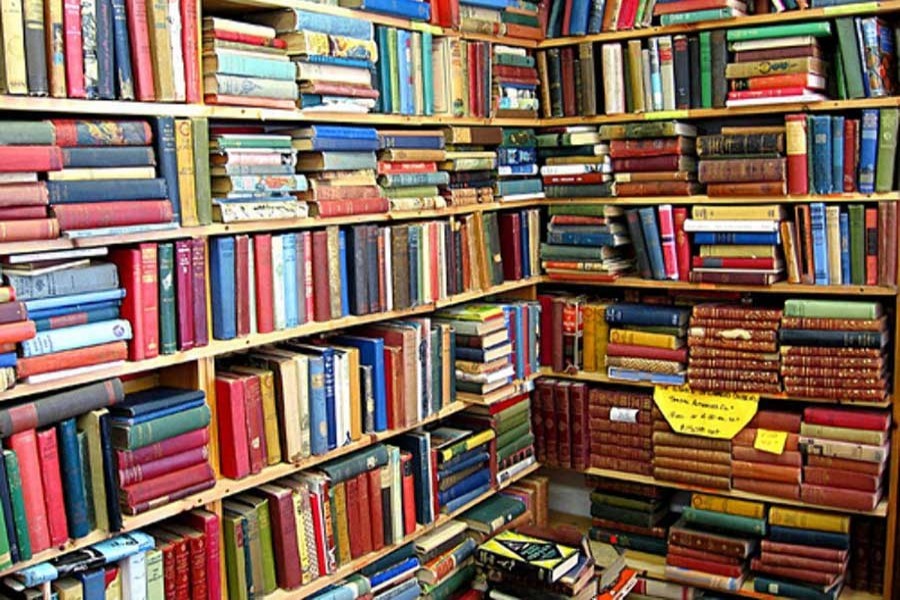Visiting a library was by far the most common cultural activity among the Americans in the past year. A survey conducted by Gallup in December last unveiled the fact. It also showed that Americans went to libraries more often than movies and sports events. The survey finding has also rekindled the debate on the future of public libraries in the United States (US). Many claimed that necessity of public libraries had declined in the face of new challenges. Library lovers are now arguing more strongly that any question about the necessity of public libraries is irrelevant.
Where does Bangladesh stand in this regard? There is no such survey in this country and there is no comprehensive register of public libraries. The National Book Centre (NBC) publishes a directory of the libraries annually which provides information about such facilities. Currently, there are 1,341 non-government public libraries registered with the NBC. There are also some 71 government public libraries under the Department of Public Libraries (DPL). The website of DPL, however, doesn't provide any detail statistics on government-run public libraries. Beside all these, a good number of small libraries also exit even in different villages.
Thus library is not necessarily vanishing as claimed by many although a large number of libraries are struggling for survival. So, it is important to adopt new approach in line with the changing pattern of society and technology to keep libraries active. The British Council has been providing support to some selected public libraries under its 'Libraries Unlimited' programme. The unique feature of the programme is that it is focusing on information technology to make the libraries more user-friendly and relevant. For instance, its computer coding workshop for children becomes a popular learning activity. Currently, computer coding workshops are being held to 64 district-level public libraries in the country.
The main challenge before public libraries is to attract more readers and users and provide them necessary services. A good number of students now use public libraries for their test preparations. There is nothing wrong with it. Nevertheless, to know the pattern of usages of libraries, a well-designed comprehensive survey is a must. Without any such survey, it will be difficult to devise any effective plan to make the libraries more useable. Both the NBC and DPL can jointly take an initiative in this regard.
Another important thing is to make a revision of the current national library policy which was last revised in 2001. The 19-point policy document is basically a guideline to improve the public libraries and there is a lack of clear direction. Roles of regulatory authorities are also ambiguous in the policy. The NBC and DPL, under the ministry of cultural affairs, are working on library development. There is, however, a lack of coordination between these two regulators.
Again, most of the privately-run public libraries have little space to place their requirements on overcoming difficulties and challenges. A federation of these libraries has also been formed around a decade ago to bring all the privately-run public libraries under an umbrella. The initiative doesn't work due to resource constraints.


